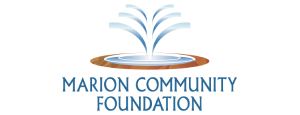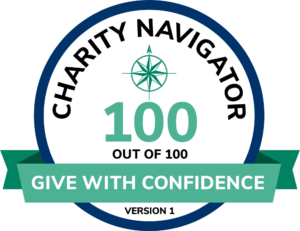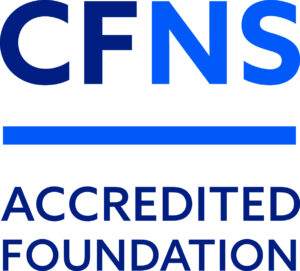Ways To Give
Learn More: Give | Establish Your Fund | Types of Funds | Memorial Gifts | Givings Tips | Our Funds

When it comes to gifting, there are a wide range of options and vehicles you can use to establish or add to a named charitable fund. Once you create your fund, you can add any dollar amount at any time. And, since the Marion Community Foundation is a legal public charity, you’ll receive the maximum tax benefits allowed by the Internal Revenue Service.
We look forward to talking with you and your financial advisor about the many giving opportunities available. We invite you to contact us about establishing a fund. Do not hesitate to let us know if we may provide assistance or information at any point in your giving experience.
• IRA Distributions
Thanks to the PATH Act of 2015, donors 72 or older who are in the enviable position of not needing all of their annual required minimum distributions (RMD) from traditional IRAs can donate directly to Marion Community Foundation. Although these direct IRA distribution gifts are not deductible on a tax return, by having them donated directly to the Foundation, they will not be counted as income for tax purposes. This is an especially good gift to consider for those who don’t itemize tax deductions. We will work with your plan administrator to help you accomplish this gift.
• Stocks & Securities
Securities
Gifts of appreciated securities (bonds and stock, including stock in closely held companies) also may be used to establish a fund or add to an existing fund. Such gifts often provide important tax advantages. Their full fair market value is deductible as a charitable contribution up to 30 percent of your adjusted gross income. As with gifts of cash, deduction amounts exceeding this limit may be carried forward for up to five additional years. The added benefit of giving appreciated securities is the avoidance of the capital gains tax on the appreciated portion of the gift. Gifts of closely held stock enjoy the same tax benefits as with publicly traded stock.
Long Term Appreciated Stock Gifts
Giving stock is really easier than one might think and it gives a double tax break to the donor — no capital gains tax on the appreciation and a deduction for the entire gift. We will work with your financial advisor to help select stock(s) that will provide the most benefit and help you through the simple gifting process.
Gifts of Poorly Performing Stock
Using stock that has decreased in value is also a good way to make a charitable gift. The donor can claim the capital loss on his or her tax return and get the charitable deduction for the cash gift.
• Cash Gifts
A cash gift — including checks and credit cards — is the simplest way to establish a named fund or to add to an existing fund. Gifts can be mailed in, dropped off at our lovely home inside the historic Stengel-True Museum, or made electronically via the secure, online credit card portal on our website. To explore our existing funds — and discover which match your interests — hover over the GIVE tab at the top of this page, slide down to Our Funds and release; then, type a name or interest area in the Search bar.
Cash gifts are fully deductible up to 50 percent of the donor’s adjusted gross income in any one year. Deduction amounts exceeding this limit may be carried forward for up to five additional years.
• Life Income Plans
Charitable Remainder Trusts
A Charitable Remainder Trust allows the transfer of assets now to Marion Community Foundation while you continue to receive income from those assets. This type of gift is a good fit for people who hold assets that would make beautiful gifts at some time in the future, but currently need those assets for income. A Charitable Remainder Trust can increase income for life, give a generous charitable contribution for the year of the gift, and, if the gift is stock, avoid capital gains taxes. Marion Community Foundation can administer charitable remainder unitrusts and annuity trusts, both of which pay lifetime income to you or other named beneficiaries.
Another option is a Charitable Lead Trust. These help reduce income for those in high tax brackets. In this situation, the individual keeps the asset but directs the income to Marion Community Foundation.
Establishing a trust is simple. Cash or property is transferred to the trust. The income beneficiaries receive annually an amount equal to a fixed percentage of the trust’s fair market value (unitrust) or a fixed dollar amount (annuity trust). Upon termination of the trust, the assets are transferred to your named charitable fund here at Marion Community Foundation to support your individual or personal charitable giving goals.
Charitable Gift Annuities
A charitable gift annuity from Marion Community Foundation (in partnership with the Columbus Foundation) is a life income gift with components of both a charitable gift and a financial investment. It creates a legacy fund and a lifetime stream of annual income for you, the donor.
By establishing a charitable gift annuity of $10,000 or more, our donors will receive a fixed and guaranteed payment for the remainder of his or her lifetime(s) and the balance remains with the Foundation to carry out your charitable intentions in perpetuity.
After paying the lifetime annuity to you and your spouse, the remaining principal is transferred to the named charitable fund you establish with Marion Community Foundation to accomplish your specific charitable goals.
Our payments to you are based on your age; the older you are, the higher the rate. If the annuity is for you and your spouse, the calculation is based on your joint ages. If you need the income now, you can use our deferred plan and receive the income tax deduction now, but begin receiving payments when you reach a specific age. This is an excellent complement to your existing retirement plan.
The tax advantages of both a current and deferred annuity are two-fold. First, you receive an immediate income tax charitable deduction when you create your annuity. This is based on your age and annuity payout rate. Second, a portion of the payments you receive may be treated either as tax-free return of principal or long-term capital gains. These tax advantages increase the net income you receive.
Our staff is pleased to provide a free, personalized analysis regarding your charitable gift annuity rate and tax deduction information. As these giving vehicles are complex and related to other estate planning, we encourage you to work with your lawyer or financial advisor. If you have questions about life income plans that have not been answered in this section, please contact us for more information.
• Wills, Bequests & Remainder Gifts
Donors who are not quite ready to make a gift at this time, but want to establish a legacy to the Marion community, can easily make Marion Community Foundation the beneficiary of a will, trust, TOD, or POD designations. Options include designating a fixed dollar amount of the gift or a percentage of an estate.
After assuring that their loved ones have been cared for, donors can use a variety of assets, such as pension plans, life insurance or the proceeds from the sale of a house, for charitable purposes.
We will work with your attorney and financial planner to ensure this is an easy process and that the correct language is used in estate planning documents to create the gift.
Bequests
You can establish or add to your named fund in your will or trust through a bequest. Your gift can be used to accomplish almost any charitable goal:
- Establishing a scholarship fund
- Creating an endowment for a particular charity
- Leaving a family legacy, which allows children to continue their involvement in future charitable grant making.
Retirement & Pension Plans
A retirement plan is one of the best types of assets to transfer to a charity because it produces taxable income. Most assets an heir inherits are free from income tax. However, an heir will pay income tax on disbursements from a decedent’s retirement plan such as a profit sharing plan, Section 401(k) plan or IRA. If you are going to make a charitable bequest, it is usually better to transfer the taxable assets subject to income tax to a tax-exempt charity — such as Marion Community Foundation — and to transfer the assets not subject to income tax to heirs.
For a taxable estate over $3 million, the combination of estate and income taxes will frequently exceed 75 percent of the total amount — even more if the generation skipping transfer taxes are triggered. At a cost to your heirs of only 25 percent of the fair market value of these type of assets, you could apply 100 percent of the assets to a named charitable fund to accomplish your specific charitable objectives.
Life Insurance Policies
Individuals with a life insurance policy they no longer need, might consider naming Marion Community Foundation as the owner and beneficiary of the policy. By doing so, you receive an immediate tax deduction, which usually approximates the cash surrender value of the policy. All premium payments made by you thereafter will be deductible as a charitable contribution.
If you would like to contribute the proceeds of a life insurance policy to help the community, but are not yet ready to give up ownership of the policy, simply name Marion Community Foundation as a beneficiary of your policy. You retain ownership of the policy and have access to the cash value as well as the right to change the beneficiary.
If you don’t have liquid assets right now but want to support a favorite charity, a gift of life insurance may be a good option. While you retain ownership of the policy, there is no charitable deduction for the value of the policy when you designate Marion Community Foundation as the beneficiary or for subsequent insurance premiums. However, proceeds payable to Marion Community Foundation at your death will not be subject to federal estate taxes.
We encourage you to work with your lawyer, insurance agent, or financial advisor as you consider these options. Our staff is experienced in the use of these giving vehicles and is eager to work with you and your advisor in this process. If you have questions about remainder gifts that have not been answered in this section, please contact us for more information.
• Memorial Gifts
Charitable funds can be created as tributes and memorials for loved ones or families. Contributions may also be made to existing funds in order to:
- honor a living person
- memorialize deceased persons
- commemorate anniversaries or other special events.
Donors can use this giving option, for example, to:
- create a scholarship fund acknowledging the contributions of a retiring teacher
- engage a civic group in creating an emergency relief fund for a disaster
- support the favorite charities of a couple celebrating their 50th anniversary
- create a youth program that keeps the memory of a deceased child; and/or
- your unique idea.
If you have questions about memorial or commemorative gifts, please visit Creating a Legacy for Your Loved One.
• Real Estate & Agricultural Gifts
Like appreciated stock, the gift of appreciated real estate avoids the capital gains tax and provides a charitable deduction for the full fair market value of the real estate. We can even accept agricultural gifts of livestock and grain.
• Fundraising
Sometimes individuals or groups want to hold personal fundraisers to add to and grow an endowment fund at Marion Community Foundation. There are a number of laws and regulations for doing so. We have created a guide to Donor-Initiated Fundraising to outline what you need to know. Click HERE to download a printable PDF of the guide.
Ideas for fundraising events might include a 5K run, bowling tournament, car show, benefit dinner, golf tournament, car wash, or many other creative and personal ways to build an endowment important to you and your family.
Learn More: Give | Establish Your Fund | Types of Funds | Memorial Gifts | Givings Tips | Our Funds



